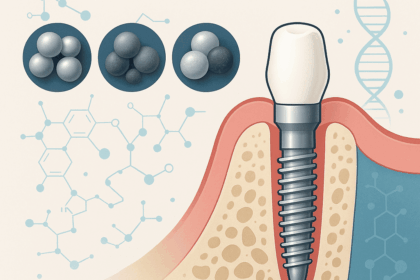
Test for Biocompatibility of Dental Implants
Did you know that all dental implants are not suitable for everyone? Not because of their size or technical characteristics… But mainly because of their core material and the processing of their surface, which is projected to be in direct contact with the tissues of your body (bone and gums) for many, many years.
The vast majority of the dental community (dentists, implant manufacturers, local representatives of implant companies) believes that all implants are approximately the same, that they behave similarly and finally that their main differences are related to their technical characteristics, which allow them to maintain more or less peri-implant bone, and result in more or less aesthetic dental restorations. The truth, of course, couldn’t be more different.
As stated above, the implant surface and core material are the most important implant features that we have to check before making our final selection. Unfortunately, there is a general lack of understanding of all of the above, since all implants are definitely not the same and they are not made simply of Titanium, as most people (including dentists) might believe. Metals like Aluminum (Al), Vanadium (V) and Zirconium (Zr) could have an important share in the implant’s mass and structure, along the most commonly used Titanium (Ti). This is not necessarily bad, but it could be sometimes, having a significant impact on the implant’s biocompatibility and its relationship with your specific organism. The same applies to the implant surface. This implant could fail to integrate to the bone of people that it’s not compatible with, while the worst scenario could be such an implant to actually integrate and then harm their organism for as long as it stays in their jaw.
In our clinic we believe in fully customized diagnostics and treatments, different for everyone of us. With a simple, totally non-invasive, test that lasts for a few minutes, we can confirm if an implant is (or if it’s not) suitable for your body specifically, utilizing cutting-edge technology of Bioresonance diagnostics. With this very simple test we can maximize the safety and predictability of all treatments provided to our patients.




